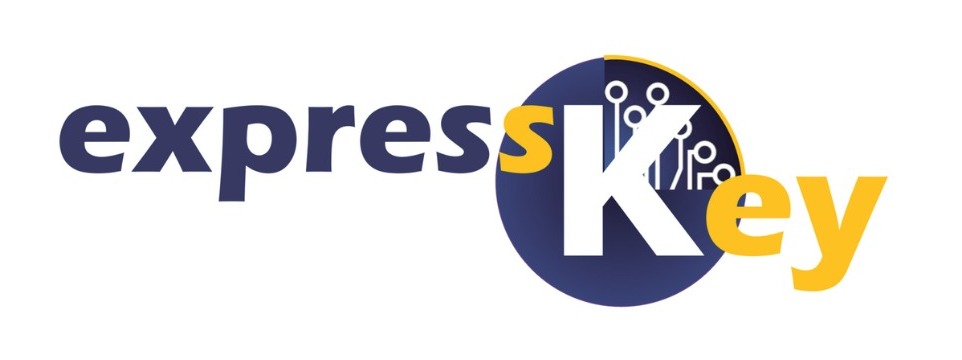
Maximizing Engagement: The Benefits of Integrating Messaging Apps
By Daniela Lopez
Content Marketing Specialist for ExpressKey, Inc.
10/24/2024
In today’ world, effective communication is essential for both personal and business success. Messaging apps have become a key part of how companies stay connected with customers, coordinate with partners, and manage internal operations. With their ability to deliver instant messages, provide real-time updates, and streamline conversations, these platforms have largely replaced more traditional channels like email or phone calls, offering a faster, more direct way to communicate. Currently, the most popular messaging apps are Telegram and WhatsApp, each with millions of users worldwide. WhatsApp is widely known for its secure messaging and global reach, making it ideal for building personal connections with customers. On the other hand, Telegram stands out with its advanced tools like bots, channels, and large group management, which make it perfect for automation and large-scale communication. Both apps offer unique strengths that can enhance business operations in different ways which is why people love them, and use them that much.
Key Features of Each Platform
Telegram: With over 800 million active users, Telegram stands out for its speed, robust security, and a wide range of features. Users can interact without needing to share their phone numbers, ensuring privacy. Additionally, Telegram offers cloud storage and seamless message synchronization across devices, making it easy for teams to stay connected.
WhatsApp: With around two billion users, WhatsApp is a leading choice for personal communication. It prioritizes message security with end-to-end encryption and offers various business tools, such as automated messaging and product showcases. This makes it an excellent platform for businesses looking to maintain secure and efficient communication with their clients.
Five Factors to get Advantage in your Business
Consistent Branding: By aligning messaging across both Telegram and WhatsApp, businesses can create a cohesive user experience that strengthens their brand identity.
Enhanced Internal Communication: Integrating these two apps facilitates smooth communication among team members, regardless of which messaging tool they prefer. This flexibility is essential in fostering collaboration and ensuring that everyone is on the same page.
Better Customer Engagement: Businesses can engage more effectively with customers by offering quick responses through their platform of choice. This responsiveness builds trust and enhances customer satisfaction.
Streamlined Communication with Partners: Consistent messaging helps maintain clear communication with suppliers and partners, reducing the chances of misunderstandings and ensuring everyone is aligned on goals.
Increased Team Collaboration: A combined messaging approach encourages teamwork and boosts overall efficiency, as team members can easily share information and collaborate in real time.
Utilizing Messaging Platforms Across Industries
Messaging platforms like Telegram and WhatsApp can significantly enhance communication and collaboration in various industries. Here are some examples of how different sectors can leverage these tools:
Healthcare: Medical professionals can use WhatsApp for secure communication with patients, sharing important updates and appointment reminders. Telegram can facilitate group chats for healthcare teams to discuss cases and share resources.
Retail: Retail businesses can engage customers through WhatsApp, offering personalized product recommendations and support. Telegram can serve as a channel for sharing promotions and collecting customer feedback in real time.
Education: Educators can utilize both platforms to communicate with students and parents. WhatsApp can be used for group chats to discuss assignments, while Telegram can host larger community channels for sharing educational resources.
Construction: Project managers in the construction industry can use Telegram to coordinate with teams on-site, sharing updates and photos instantly. WhatsApp can facilitate communication with suppliers and subcontractors to streamline project timelines.
Events and Hospitality: Event planners can use these platforms to communicate with vendors and clients. WhatsApp can be employed for quick updates and inquiries, while Telegram can create groups for coordinating details among event staff.
Integrating Telegram and WhatsApp allows businesses to refine their communication strategies, improve customer engagement, and thrive in an increasingly digital landscape. With the growing significance of these platforms, professionals across industries can utilize them to streamline processes and enhance collaboration. These apps offer great value, but it’s important for their creators to clearly communicate the purpose and intended use of each one. This will help users understand their functionality better and avoid any confusion or misuse. When the purpose of an app is well-defined, people can make the most out of it and use it the right way, improving both their experience and the app’s effectiveness.
Disclaimer:
ExpressKey is not affiliated with, nor does it own or have any rights to Telegram, WhatsApp, or any of their associated brands, trademarks, or services. These platforms are mentioned solely for informational purposes to illustrate examples of messaging apps and their potential benefits. ExpressKey does not endorse or have any official partnership with these apps. All rights and ownership remain with their respective companies.
Telegram Messenger is developed by Telegram FZ-LLC
WhatsApp Messenger is developed by WhatsApp Inc.
